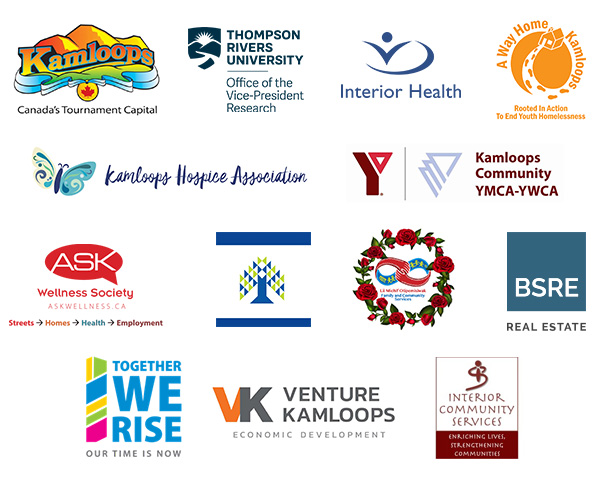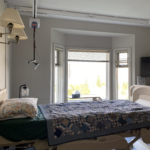Housing In Kamloops
Mapping the Crisis, 2023
Canada’s National Housing Strategy Act (2019) declares that “the right to adequate housing is a fundamental human right affirmed in international law,” and that “housing is essential to the inherent dignity and well-being of the person and to building sustainable and inclusive communities.” Similarly, the City of Kamloops (2018) “is committed to ensuring that residents enjoy a high quality of life which includes access to a full range of housing options for people of all ages, abilities and income levels.”
Like many communities, Kamloops struggles to house its citizens through all levels of the housing continuum. In 2021, the point-in-time count listed 206 visibly homeless in the city; hidden homelessness and those who are at risk of homelessness inflate that number. There are currently approximately 165 year-round shelter spaces in the city. BC Housing typically funds additional shelter spaces during the winter months and to support extreme weather response. BC Housing reports that the waitlist for supportive housing units is around 200. The 2020 Housing Needs Assessment estimates that by 2030, we will require another 205 supportive housing units, and over 1,300 supportive and non-market rental homes. The market rental vacancy rate in Kamloops is .9%; a healthy rate is 3 to 5%.
Housing is deemed affordable when households spend less than 30% of their total income on accommodation costs. In British Columbia, fully one quarter of households spend more than 30%. In Kamloops, 46.8% of renters, and 13.7% of homeowners, are living in unaffordable housing. In 2011, 695 homes in Kamloops were purchased for under $240K; in 2018, 106 homes were for sale for under $275K, showing a drastic reduction of affordable home ownership for potential buyers.
Al these statistics indicate that Kamloops is experiencing a housing crisis throughout the spectrum.
Working with our partners, agencies, institutions, and people responsible for housing in Kamloops, the students of TRU’s CMNS 4020, Representing Community (Fall 2022) seek to tell the story of the points at which our housing system breaks down by mapping some of the hotspots in our community that demonstrate a system in crisis. From the capacity issues in emergency housing, to the development of supportive housing, through issues in non-market and subsidized rental for seniors, students, and others, to the lack of market rentals and the proliferation of illegal suites, and across ownership problems for first-time buyers, such as accessing capital or smaller units, we hope to show that the housing crisis in Kamloops is about more than the visibly homeless—it affects us all.
Housing Categories
Select a category for a brief summary.
Click or press on housing map locations for more details.
Use the drop-down menu below the map to view/sort specific Housing Categories.
About the Course
CMNS 4020, Representing Community, is a senior undergraduate course in which students participate in a team-based, community-engaged research project to produce a website examining an issue of public interest. We partner with agencies, institutions, and organizations in Kamloops. The course is approved by the Research Ethics Board at TRU, and all students must successfully complete the federal Panel on Research Ethics certification. All community participants are fully briefed on the project, and must sign a Letter of Consent for students to use their material on the website. To find more, or to register any comments, please contact Professor Kathleen Scherf at kath@tru.ca.
Partners
CMNS 4020 recognizes that it stands on the shoulders of giants; we are so grateful to the organizations that have contributed to this project.

Top banner image credit: “Kamloops October 2012” by mastermaq is licensed under CC BY-SA 2.0.














